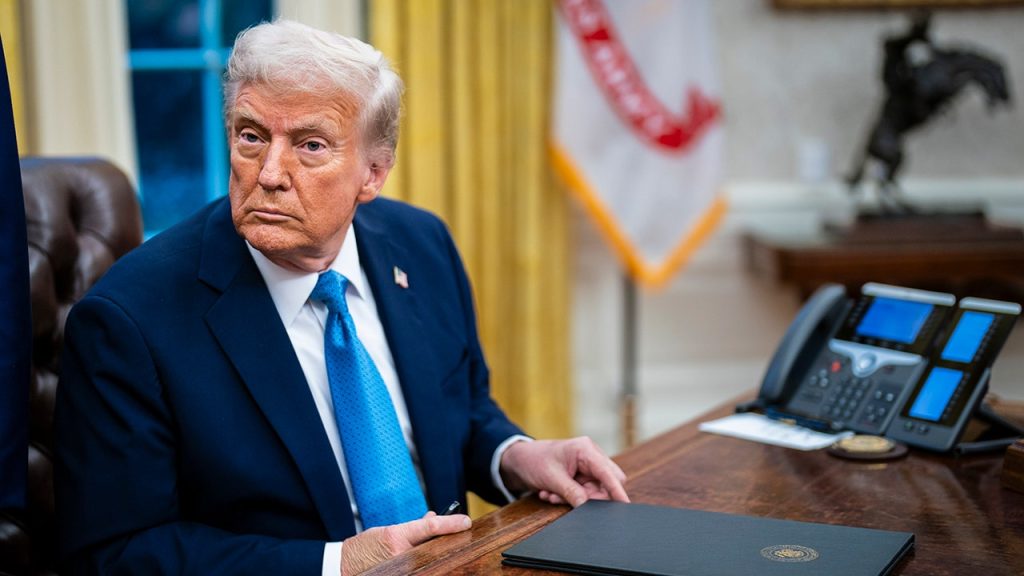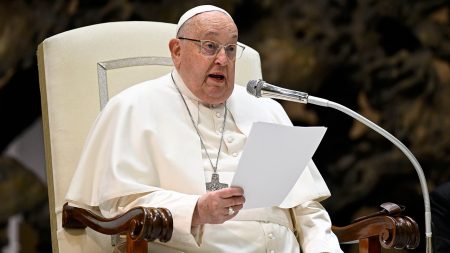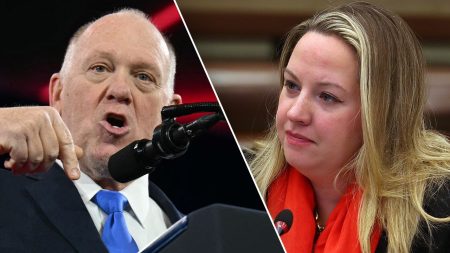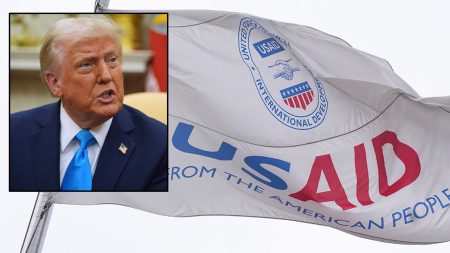The Trump administration has implemented new tariffs on goods imported from Mexico, Canada, and China, citing the urgent need to curb the influx of fentanyl and other illicit drugs into the United States. These tariffs, which took effect at midnight on Tuesday, include a 25% levy on all Mexican and Canadian imports, a 10% tariff on Canadian energy, and a 10% tariff on all Chinese imports. The administration insists that these measures are a critical response to a national emergency posed by the opioid crisis and not a component of an ongoing international trade war. This narrative emphasizes the devastating impact of fentanyl, responsible for hundreds of thousands of overdose deaths in the U.S., and frames the tariffs as a necessary step to protect American lives.
President Trump engaged in direct discussions with both Canadian Prime Minister Justin Trudeau and Mexican President Claudia Sheinbaum regarding the tariffs. While maintaining a firm stance with Canada, accusing the country of unfair trade practices and contributing to the drug crisis, Trump reached a temporary agreement with Mexico. Following his conversation with Sheinbaum, the implementation of tariffs on Mexican goods was postponed for one month. This reprieve was granted in exchange for Mexico’s commitment to deploy 10,000 soldiers to its northern border to combat fentanyl trafficking and illegal immigration. During this one-month period, high-level representatives from both countries, including designated Secretaries of State, Treasury, and Commerce, will engage in negotiations aimed at achieving a mutually agreeable resolution.
The administration’s focus on the fentanyl crisis as the primary driver behind the tariffs is echoed by other key figures. Vice President JD Vance highlighted the significant flow of fentanyl from Mexico and the increasing trafficking through Canada, underscoring the urgency of addressing the issue. Interior Secretary Doug Burgum reinforced the administration’s position, stating that the tariffs are not about trade wars but about stemming the tide of fentanyl-related deaths, which claim nearly 300 American lives daily. This consistent messaging seeks to establish a direct link between the tariffs and the opioid crisis, portraying the measures as a vital response to a national security threat.
President Trump’s rationale for the tariffs extends beyond the immediate drug crisis to encompass broader trade imbalances with Canada and Mexico. He has accused Canada of longstanding unfair trade practices, including restrictions on U.S. banks operating within its borders, barriers to energy and agricultural imports, and benefiting from significant U.S. subsidies without reciprocal benefits. While expressing fondness for the Canadian people, Trump signaled his disapproval of the Canadian leadership and hinted at further actions to address these perceived inequities. This broader critique of trade relations adds another layer to the justifications for the tariffs, potentially complicating the negotiations and escalating tensions between the countries.
The tariffs have been met with strong opposition from Canada and Mexico. Mexico, in particular, has vehemently rejected accusations of collusion with criminal organizations and any suggestion of intervention in its sovereign territory. Sheinbaum emphasized Mexico’s commitment to combating fentanyl trafficking and called for collaborative efforts based on mutual respect and shared responsibility. This response underscores the sensitivity surrounding issues of sovereignty and the importance of international cooperation in addressing transnational criminal activities. The diverging perspectives on the root causes of the fentanyl crisis and the appropriate responses further complicate the ongoing discussions.
Canada responded to the U.S. tariffs with retaliatory measures of its own. Prime Minister Trudeau encouraged Canadians to prioritize domestically produced goods, launching a “buy Canada” campaign. Furthermore, Canada announced retaliatory tariffs on $20 billion worth of U.S. imports, targeting various products including agricultural goods. This tit-for-tat response signals Canada’s unwillingness to accept the U.S. tariffs without repercussions and raises concerns about the potential escalation of a trade war. The interplay of these competing economic interests and national security concerns creates a complex and challenging landscape for future negotiations.










